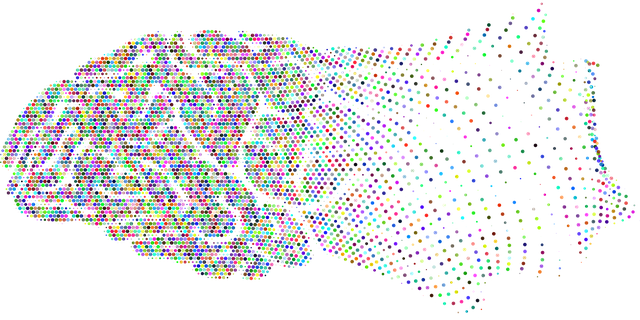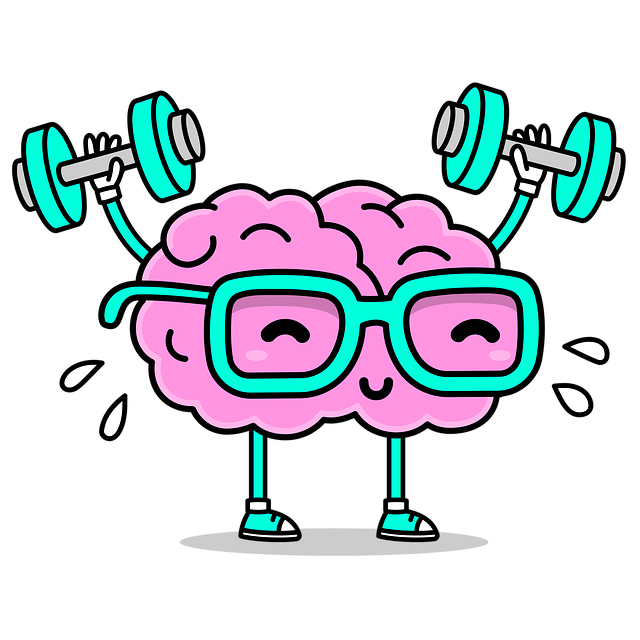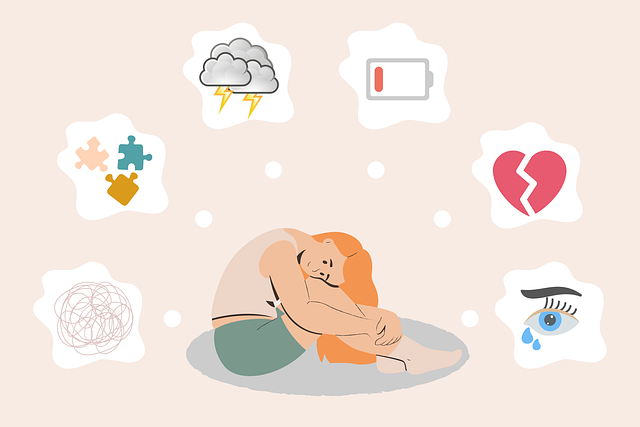Lafayette Women's Issues Therapy emphasizes early depression recognition through varied symptoms like sadness, appetite changes, fatigue, and physical ailments. Cultural sensitivity and awareness are crucial in mental healthcare, with initiatives promoting culturally competent care and empowering individuals to recognize early signs. Building community support, open conversations, and normalizing help-seeking reduce stigma. A healthy lifestyle, including balanced diet, exercise, quality sleep, and stress management techniques, is advocated by Lafayette Therapy for prevention and mood regulation. Tailored therapeutic interventions like CBT, IPT, and mindfulness techniques offer coping strategies and emotional healing. Stress management and building resilience through social support networks enhance individuals' ability to overcome challenges.
Depression is a prevalent yet manageable condition that requires proactive strategies for prevention. This comprehensive guide explores various approaches to safeguard your mental well-being, offering valuable insights tailored to individuals seeking support in Lafayette or beyond. From recognizing subtle signs and fostering social connections to adopting healthy habits and therapeutic interventions, each section delves into actionable steps to combat depression and promote a resilient mindset.
- Recognizing Depression: Understanding the Signs and Symptoms
- Creating a Supportive Environment: The Role of Social Connections
- Healthy Lifestyle Choices: Nutrition, Exercise, and Sleep for Mood Regulation
- Therapeutic Interventions: Exploring Different Types of Therapy
- Building Resilience: Coping Strategies and Stress Management Techniques
Recognizing Depression: Understanding the Signs and Symptoms

Recognizing depression is a crucial step in seeking help and fostering Lafayette Women’s Issues Therapy. It’s important to note that depression manifests differently for everyone, but there are common signs and symptoms to watch out for. These can include persistent feelings of sadness, loss of interest or pleasure in activities once enjoyed, changes in appetite or sleep patterns, fatigue, difficulty concentrating, feelings of worthlessness or guilt, recurrent thoughts of death or suicide, and physical symptoms like headaches, digestive issues, or chronic pain.
Understanding these indicators is essential, especially considering the impact of cultural sensitivity in mental healthcare practice. Different cultures may interpret and express emotions uniquely, so a nuanced approach is vital. In light of this, Mental Health Policy Analysis and Advocacy plays a significant role in promoting awareness and ensuring access to culturally competent care. Moreover, building inner strength through development programs can equip individuals with tools to recognize and manage early warning signs, fostering resilience against depressive episodes.
Creating a Supportive Environment: The Role of Social Connections

Building a robust support network is essential for depression prevention, and this starts with creating a supportive environment. Social connections play a pivotal role in maintaining mental health, offering a sense of belonging and purpose. For individuals dealing with depression, having a strong support system can be transformative. Encouraging open conversations about mental health and fostering an atmosphere where seeking help is normalized can significantly reduce the stigma surrounding mental illness. This is particularly relevant for communities like Lafayette, where initiatives like the Women’s Issues Therapy program aim to provide accessible therapy services.
Community outreach programs that focus on connection and support can implement strategies such as peer support groups, where individuals share their experiences and offer encouragement. These connections can help prevent burnout, a common issue in those managing depression, by providing a sense of community and shared understanding. By reducing the mental illness stigma through education and awareness, Lafayette’s community outreach efforts contribute to a healthier environment where individuals feel empowered to seek assistance when needed.
Healthy Lifestyle Choices: Nutrition, Exercise, and Sleep for Mood Regulation

Adopting healthy lifestyle choices is a powerful tool for depression prevention and managing mood. Nutrition plays a significant role; incorporating nutrient-rich foods into your diet can positively impact brain chemistry and overall well-being. A balanced diet, rich in fruits, vegetables, whole grains, and lean proteins, ensures your body receives the essential vitamins and minerals required for optimal brain function. Moreover, certain foods contain natural mood lifters like omega-3 fatty acids, found in fish and nuts, which have been linked to improved symptoms of depression.
Regular physical activity is another cornerstone of mood regulation. Exercise releases endorphins, often referred to as ‘feel-good’ hormones, which can reduce stress, anxiety, and depressive symptoms. Aim for at least 30 minutes of moderate exercise most days of the week; this could be a brisk walk, cycling, swimming, or even dancing—activities that not only boost mood but also provide opportunities for social interaction, which is beneficial for mental health. Additionally, prioritizing quality sleep is vital; it allows your body and mind to rest and recover, preventing burnout and promoting emotional resilience. Lafayette Women’s Issues Therapy emphasizes the interconnectedness of these healthy lifestyle choices as key strategies in fostering inner strength development and enhancing emotional intelligence.
Therapeutic Interventions: Exploring Different Types of Therapy

Depression prevention often involves therapeutic interventions that cater to individual needs. One popular approach is cognitive-behavioral therapy (CBT), which helps individuals identify and change negative thought patterns and behaviors contributing to depression. This type of therapy teaches practical coping strategies for managing symptoms, focusing on problem-solving and skill-building.
Other effective methods include interpersonal therapy (IPT), tailored to address issues related to relationships and social connections. IPT aids in improving communication skills and fostering empathy building strategies, crucial components in healing emotional wounds. Additionally, mindfulness-based therapies have gained prominence, offering techniques to cultivate present-moment awareness and boost confidence in managing depressive episodes. Lafayette Womens Issues Therapy provides a safe space for exploring these diverse therapeutic interventions, ultimately empowering individuals on their path to emotional healing processes.
Building Resilience: Coping Strategies and Stress Management Techniques

Building resilience is a key component of depression prevention. Coping strategies and stress management techniques play a vital role in maintaining emotional well-being. By adopting effective methods to navigate life’s challenges, individuals can enhance their ability to bounce back from adverse situations. Lafayette Womens Issues Therapy offers resources and support to help women develop these coping mechanisms, fostering self-care practices that promote resilience.
Stress management is integral to emotional well-being promotion techniques. Through mindfulness exercises, meditation, and deep breathing, individuals can learn to regulate their response to stressful events, reducing the likelihood of depressive episodes. Resilience building involves equipping oneself with adaptive coping skills, such as problem-solving strategies and social support networks, which can provide a buffer against life’s stressors. Lafayette Womens Issues Therapy encourages the exploration of these tools to empower women in managing their mental health proactively.
Depression prevention is a multifaceted approach that involves recognizing signs early, fostering social connections, adopting healthy lifestyle choices, exploring therapeutic interventions, and building resilience. By understanding the importance of each strategy discussed in this article—from recognizing depression to building resilience—individuals can empower themselves or support loved ones through this challenging condition. If you’re in Lafayette and seeking professional help for women’s issues therapy, remember that resources like Lafayette Womens Issues Therapy are available to provide tailored support and guidance. Together, we can navigate and overcome the shadows of depression.














